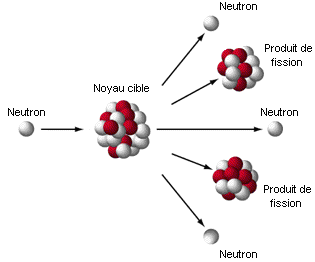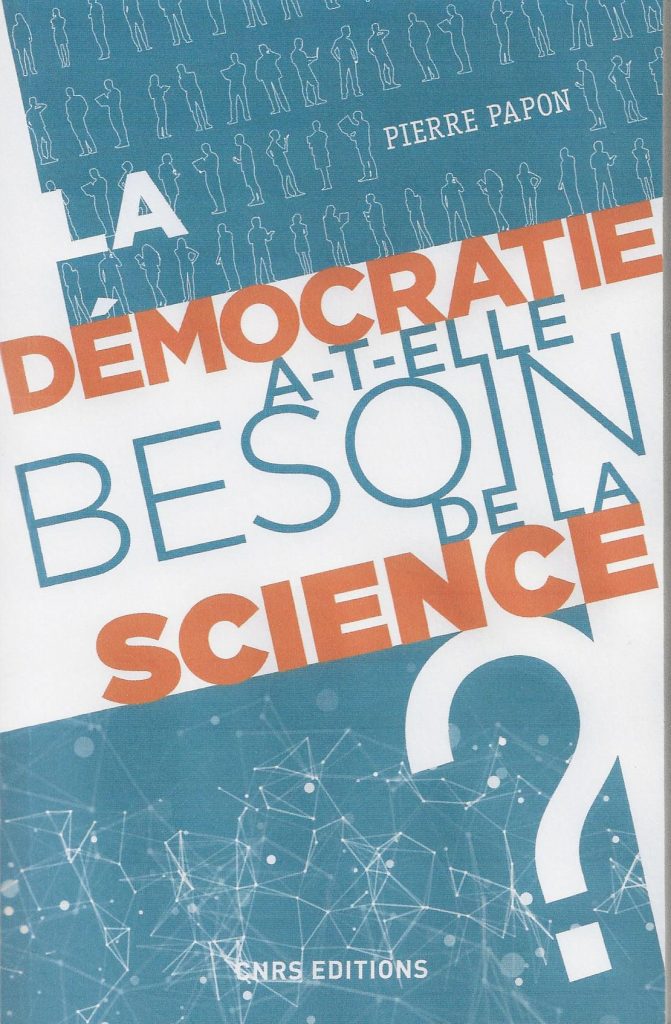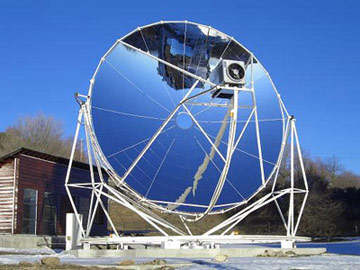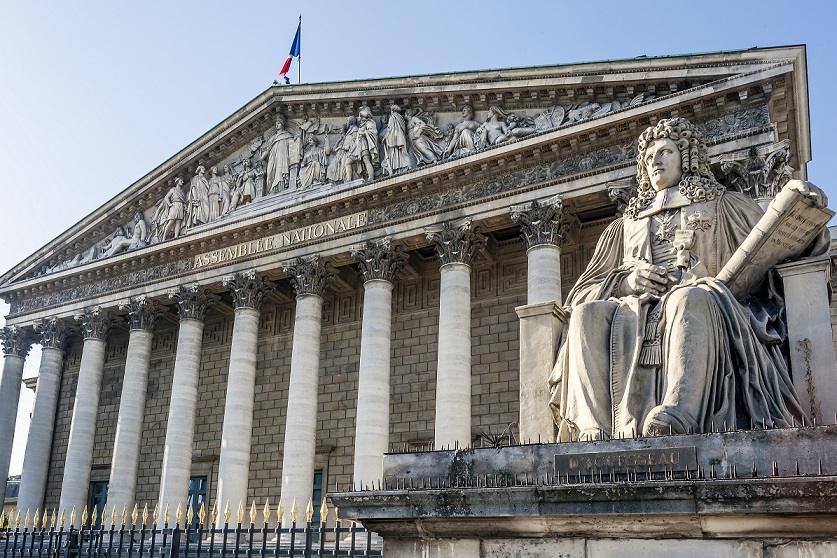
The health crisis caused by the coronavirus pandemic as well as the debates on global warming and energy transition have highlighted the role of scientific expertise in our societies. The ability of science to produce knowledge about matter, energy, the universe, life and society, its primary « mission », has increased as its increasingly close interweaving with technology makes it play an important role in the development of public policy in areas such as health, energy, transport, defence, etc. It is therefore useful to assess the role that scientific expertise plays in political decision-making and democratic policy on energy issues.
It must be noted that the role of scientific expertise, and more broadly that of science, have been challenged since several years, both in France and abroad. A report published in the United States by the Rand Corporation in 2018 deplored a » Truth Decline « , a distrust of scientific facts and data, reports of the ethics committee of the CNRS and France Strategy (France Strategy, D. Agacinski, Expertise and Democracy, do with the defiance, January 2019, www.strategie.gouv.fr ) made the same observation. It is therefore worth recalling that science has constructed a « method discourse » to develop knowledge based on hypotheses that are confronted with reality through observations and experiments, verified and clarified, over the years, and subjected to collective criticism. It reveals the « possible, » anticipates crises, such as global warming, the anthropogenic origin of which it has identified (the major role of CO2 emissions), and it discovers new means of action (the fission of uranium, in 1938, paving the way for the use of nuclear energy, the use of the photovoltaic effect in silicon to produce electricity with solar energy discovered in 1955 at Bell Laboratories). Scientific expertise provides the political decision-maker with decision-making assistance which is a trade-off between the desirable (producing electricity without CO2 emissions), the possible (using nuclear energy or renewable channels) and the acceptable by the population (ensuring the safety of the means of production).

Experts have the task of giving an intelligible and usable form to knowledge to assist in political decision-making; it is all the more difficult because knowledge is often incomplete or partially uncertain. Public policies are based on complex scientific and technical data that are often controversial (on the storage of nuclear wastes and the possibilities of the hydrogen channel, for example), and opinion polls show that a significant fraction of citizens feel ill-informed about scientific issues (according to the Survey of French people on the image of research, carried out by IPSOS in August 2019, one in two interviewees said it was difficult for them to obtain reliable and scientifically verified information). Moreover, citizens feel, as the philosopher Paul Ricoeur said in 1991 in an interview in Le Monde, that « public decision is thus captured and monopolized by experts. » This fear of a « Republic of Experts » has been echoed by the Convid-19 pandemic (R. Bacqué « Macron and the Republic of Experts », Le Monde, 27 March 2010) is excessive insofar as the mission of science is to assess what is possible, the responsibility for the choices of means of action fully belonging to the politics. Science has a mission of being a « Watch man » in a democracy (P.Papon, Does democracy need science? , CNRS Edition, September 2020) but it was only partially able to fill it in France for the energy transition.

Science marked the paths of the technical and economic construction of energy policy that governments have engraved in the marble of the law on « energy transition and green growth », passed by parliament in 2015; a law which has been put back on the drawing board, a new one having been passed, in 2019, with a multi-year energy program that shifted from 2025 to 2035, the unrealistic goal of reducing electricity generation through the nuclear power sector from 75% to 50% by 2025. A revised national low-carbon strategy was published in 2020 (with the goal of achieving carbon neutrality by 2050). Thus, today, there is a scientific consensus on: – the feasibility of a ramp-up of renewable energies (wind, solar and bioenergy) to produce electricity – the need to improve the performance of electricity storage systems (primarily batteries) which constitute a technical lock for the development of these sectors – the technical capacity of nuclear power to contribute to the « decarbonisation » of electricity production. On the other hand, there is still no consensus on the technical and economic feasibility of certain modes of electricity storage and use (notably the hydrogen and fuel cell route), and while there is one on the need to store nuclear wastes, the possibility of their underground geological storage is still debated (particularly for ethical reasons).

There is also no consensus on the safety of new nuclear systems using molten thorium salts, both as fuels and as heat-carrying fluids to extract heat from reactor cores, or even on low-power reactors (60 MW) built as modules (A.Cho, « Critics question whether novel reactors are « walk away » safe », Science, vol. 369, 21 August 2020, pp. 888, www.sciencemag.org). Finally, government programmes for the development of renewable energies, in France in particular, underestimate the need to both guarantee the resilience of networks with an electric mix where the share of intermittent sources, particularly solar, would be important (see the report RTE and IEA, Conditions and Requirements for the Technical feasible of a Power System with a High Share of Renewables in France Towards 2050 , January 2021, www.iea.org and France Strategy, What about security of electricity supply in Europe?, January 2021, www.strategiegouv.fr ) and the use of « critical » materials (lithium, graphite, cobalt, platinoids and rare earths in particular) with limited global resources.

It must be noted, in hindsight, that in the phase of preliminary consultation on the development of energy transition laws, the major research institutions with a capacity for expertise in the energy sector (CNRS, CEA, IFP New Energy, academies) were insufficiently consulted by the government, the politics did not take, in a way, the temperature of the scientific consensus on what was scientifically possible. The Academy of Sciences expressed concern about this in 2017, in a note made public, questioning: « Is the question of the energy transition well posed? » This is not certain because in a new note in 2018, she said that « the energy transition must take into account scientific, technological and economic realities. » The same can be said about the « recovery plan » of the economy (100 billion euros), adopted urgently in September 2020, which provides for several important measures for the energy strategy (renewable energy and nuclear) but does not take sufficient account of the technical-scientific uncertainties weighing on certain energy sectors, notably the storage of electricity and the hydrogen sector (2 billion euros of credits in 2021-2022) as well as their costs. (see Marie Dégremont, « Hydrogen in France: a promising sector… thirty years from now, » La Recherche, February-April 2021, p. 134, P. Papon, « French Recovery Plan: Future Investments? », Futuribles, No. 440, January-February 2021, p. 89, www.futuribles.com ).

In France, as in any democracy, politics must make a trade-off between the desirable, the possible and the acceptable, especially to initiate the energy transition, using knowledge as a compass to point out possible paths, but it has not always done so wisely. Presumably, in the future, scientific and technical data will weigh heavily in the policy decisions that will guide energy strategies, so it is essential to strengthen the dialogue between scientists and politics in the field of energy. From this perspective, three steps are needed. The first one is the recognition by the public authorities of the role of science in public policy-making, a « watch man » role based on a dynamic research policy mobilizing all disciplines from mathematics to the humanities and social sciences. A role which was played by Sadi Carnot, a French scientist and engineer and one of the “fathers” of thermodynamics, in his book, published in 1824, “Réflexions sur la puissance motrice du feu” in which he foresighted the importance of thermal engines in the economy of the future (he died in 1832 during a cholera epidemic in Paris, cf. his picture in front). The second is a series of initiatives to overcome the distrust of some of the public and policy makers towards science (the health crisis caused by the coronavirus has highlighted this). Consultations, « citizen conventions », such as climate conventions and even « social experiments » (testing social innovation on the ground, for example, new ways of using energy, urban development), involving citizens, associations and researchers are desirable. The National Public Debate Commission has experimented with a methodology for organising such debates, held in particular, in 2019, on the occasion of the implementation of the nuclear waste storage plan.

Finally, the strengthening of the dialogue between elected representatives (parliamentarians as a priority) is a third approach which is crucial. The bicameral Parliamentary Office for the Assessment of Scientific and Technological Choices (OPECST) should play a central role in this dialogue between elected officials, scientists and technologists. Chaired today by mathematician Cédric Villani (Medallist Fields), member of Parliament for Essonne, the Office has played a key role in the legislation on nuclear waste storage and has devoted numerous reports to energy issues.

In a world in crisis, science helps to shape a vision of the future, it is obviously not the only one, and to inform public debates on the challenges, climate and energy in particular, that our societies face and the answers that can be given to them. A mobilization of knowledge and of the scientific community is therefore necessary. This involves promoting scientific culture in the country, poorly envisaged in the multi-year research programming Law, by supporting scientific culture centres, publishing and communication policies of research organizations and universities.
